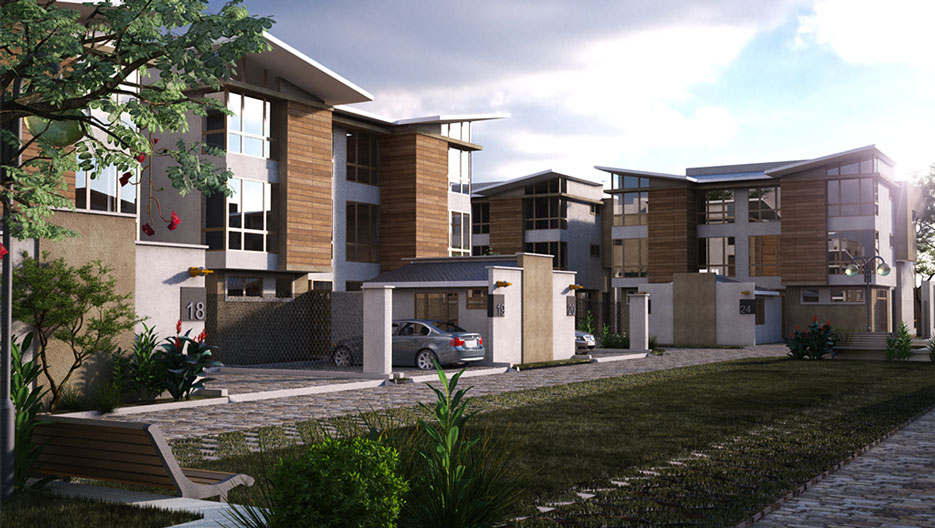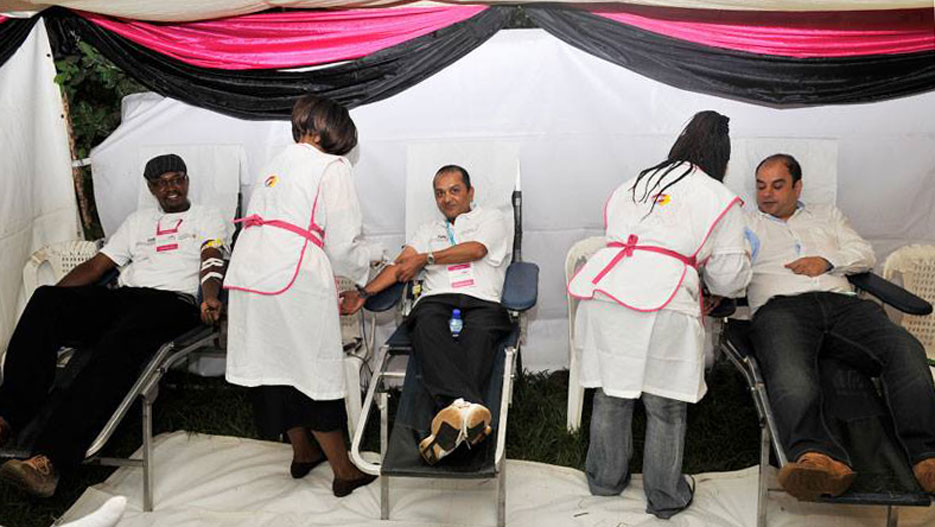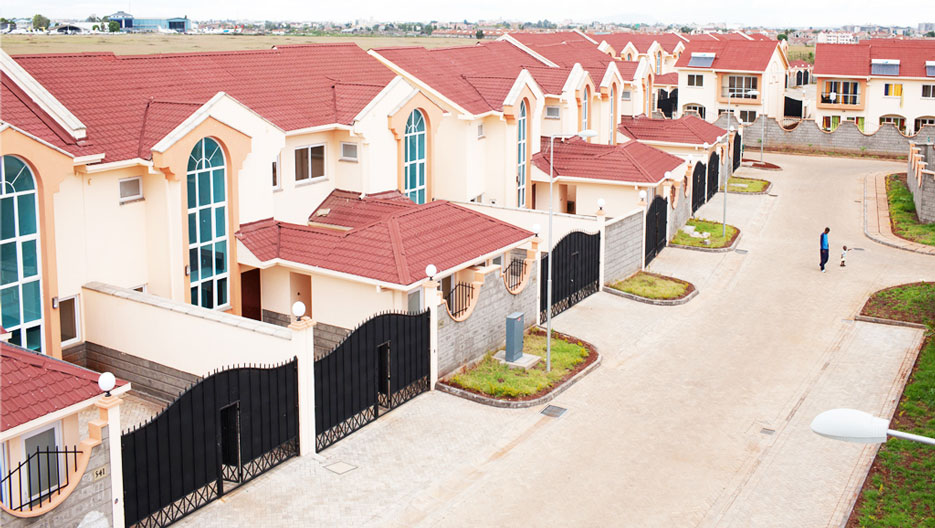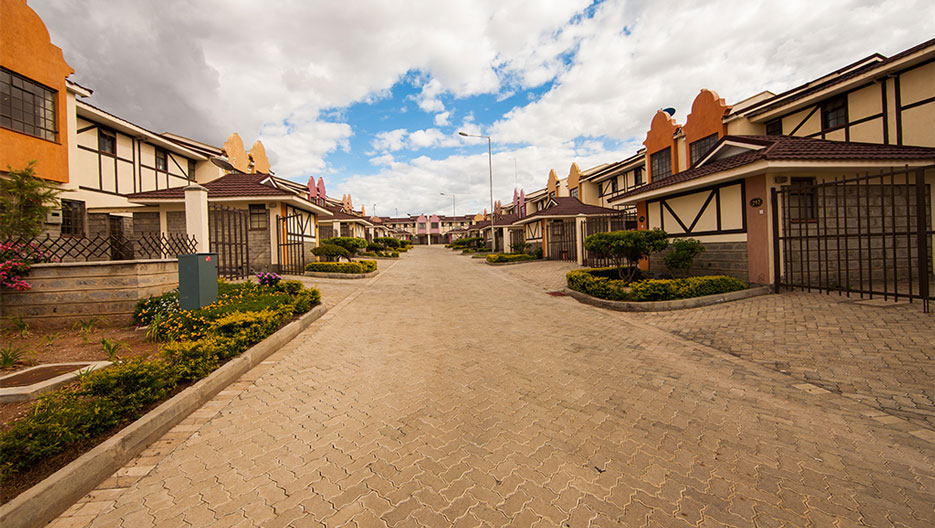Chigwell Holdings: Providing Contemporary Homes to the Kenyan Real Estate Market
Nirish Shah talks about the real estate sector in Kenya and presents Chigwell Holdings, a property developer providing the Kenyan real estate market with contemporary homes. Mr Shah also shares his vision for the future of the company and the sector.
Interview with Nirish Shah, Executive Director of Chigwell Holdings
Could you start by giving us your assessment of the real estate sector in Kenya?
The real estate sector is currently a little bit down in Kenya, in particular due primarily to a lack of money circulating in the country, together with the cost of finance, which is very high. This has resulted in a slight downturn, compounded by an oversupply in residential and commercial property. There is too much supply available and few buyers, especially since obtaining mortgages is very expensive. The returns are not there. If an investor wishes to invest in residential or commercial property, the returns tend to be very low, so everybody is shying away at the moment. But, having said that, this applies largely to building. On the other hand, when it comes to land, we see many transactions taking place. In fact, this is probably a good time to buy land. Since there is a need for money, many people are putting their money into land, rather than into built properties.
This is actually rather strange, when you consider that there is a housing deficit in Kenya?
We are very focused and highly quality-conscious. We are on-site at least twice a month, in order to monitor and check on the quality and progress of homes. We also have our own in-house research department.
The government always comes up with figures showing housing deficits, and this is true. But the problem is that the housing deficit is at the complete lower-end of the market, and what is happening is that there not enough incentive for people to build low-cost housing, or housing to accommodate for people with the most basic needs, since the cost of land is too high, as well as that of infrastructure. All of this makes it unaffordable, so even if you build a house for KES 5 million, the developer won’t make any profit, but again very few local people can afford that. Those earning up to KES 50,000, who form 80% of Kenya in general, and of Nairobi specifically, cannot afford it, so it’s a no-go ; unless government were to provide free land and all the required infrastructure, in which case it could work.
Chigwell Holdings operates as a property developer providing the Kenyan real estate market with contemporary homes. Could you give us an overview of the company’s history and main areas of actuation?
Chigwell Holdings Limited started in 2005. We began by acquiring two substantially large land lots and we then began planning and development on those lots. Our first project was Phenom Estate, of which we have completed four phases. We have placed over 350 homes on the market, which were all sold and are currently occupied.
Around 2009, we began our second project, which was in Athi River, to accommodate lower middle class families, targeting a price of between KES 5 to 7 million at the time. We initially built 127 units, but we found that uptake was very slow. We are coming to the understanding that this sector doesn’t work for us, so we are more focused on upper middle class contemporary homes.
The third project we began was Phenom Park, which comprises beautiful contemporary homes. The first phase is ready and we are currently handing over 72 units. Our second phase of 60 units is under construction and we are half-way through, with a further 40 units planned over the next three months. These are two key projects.
We are also now looking to develop an office park in the Lang’ata area, where we are embarking on a specialised course: we are opting for offices that can be sub-divided into smaller offices, which caters to start-up companies looking to rent or even buy office space. Both options are available to them. We are going to be flexible in this regard.
As Chigwell, we have purchased another land lot of around 400 acres near Limuru, called Tilisi Ltd, where we have invited a number of other partners to create a small township. We are kicking off with a logistics centre, encompassing housing, distribution, etc.

Why would you say that Chigwell Holdings projects are different? What makes you stand out from the rest?
Firstly, we are very focused and highly quality-conscious. We are on-site at least twice a month, in order to monitor and check on the quality and progress of homes. We also have our own in-house research department. Essentially, before we start a project, we analyse what is the target price we would like to achieve. On that basis, we work out what sort of clients we will be targeting, including their age brackets, lifestyles, etc. We then strive to offer them more than they would expect. What is unique about a Kenyan house owner or buyer is that Kenyans tend to be well travelled across the world. You will find Kenyans in Norway, in Sweden, in Paris, in the US, in Bermuda. You name it, and they’ll be there! They are also quite knowledgeable and many of them do know what they want.
Having travelled globally, and having seen properties and everything else abroad, we aim to meet or even exceed their expectations. This is where we are unique, in that we study our customers comprehensively, in terms of their likely profile, ranging from family size and income to any other activities they would be looking forward to. Secondly, we only target gated communities and we don’t build individual homes or the like. Moreover, we do not simply sell homes, but we also put management structures in place, i.e. companies allowing residents to manage the estates themselves. If you look at Phenom Park, our first homes were handed over in 2008. If you go and see them today, you will find that they remain well maintained, including all the landscape and gardening, thanks to those management structures we put in place. Although managed by homeowners, where they form their own committees, this has proved to be very successful for us. As a result, property values keep increasing year-on-year, rather than depreciating.
Chigwell has undertaken numerous projects in terms of CSR. Key among them is the Women4Cancer initiative, which is aimed at creating awareness in the society and empowering women to take a positive role in the fight. Could you tell us more about this initiative?
What we did was to partner with an organisation called Women4Cancer and we helped them with fundraising. We also helped them in their quest to raise blood donations, so as to increase the available blood bank, given that many cancer patients do require large amounts of blood transfusion. Therefore, we helped them and worked with them closely, by sitting together and strategizing about how to go about collecting the maximum number of blood units.
Secondly, we also take part in some of their projects, such as a golf tournament they organised and we supported. We brought in many of our clients and plenty of other people to participate and raise awareness. At Phenom Park, we also held a series of seminars to educate women about the dangers of cancers and how easy it is to monitor the early signs. We also helped them in negotiating and ensuring good pricing for the tests that need to be done. Together, we know a number of medical centres, and we sit with them to work out how they can lower the cost of testing. For example, one of the tests for breast cancer initially cost around KES 3,000, and we brought it down to 1,100. We even offered to assist them with importing certain testing kits if required.
Apart from working closely with Women4Cancer, we have also been working with Faraja Cancer Support Trust. They provide support for cancer patients and organise continuous activities at their new Faraja Centre, which is right behind MP Shah Hospital. Whenever they have activities, we help by taking part and getting people on board. For instance, we recommended that they organise an early ‘coffee party’ for executives, where each donates KES 100,000 to 1 million, according to their wishes. As such, we have helped them with fundraising for their activities.

What are the main challenges to be faced by the real estate sector in Kenya?
Unfortunately, banking here is not too conducive to developers or even for home buyers. Currently, there would only be between 25,000 and at most 30,000 mortgages issued by all banks and housing finance available in Kenya. From our perspective, this is extremely low.
The government wants 100,000 units to go up, but how do you go about that when there is no financial infrastructure to support this? The capacity to provide mortgages to new buyers is not there, and the cost of borrowing is extremely high. In fact, at times we wonder why so many foreign banks do not seize the opportunity the market has to offer here. It would be a great windfall for many of them if they began to lend in Kenya. I am aware of the challenges with regard to foreign currency, etc., but it’s the developer who has to take the risk of borrowing in dollars and paying in dollars, which minimises the potential risks to these foreign banks. Securities are always there, held by the local banks, and it would be a win-win scenario for both sides. There are many innovative products that we discuss with the banks, but which eventually they never take up. Recently we had a discussion with Standard Chartered Bank. We were asking them whether they could finance our development, as well as providing mortgages to the buyers and thus ensue a seamless system, by discharging from one security to the next, and making it possible for lending to be affordable at a lower rate. But funnily enough, I believe it’s probably the top management who either do not have time or don’t really want to work on the numbers, in order to really come up with these solutions, given that banks are very cosy here in Kenya. The easiest thing for them is to simply invest in treasury bonds, and they are making good money from that. Why should they bother about any other sector, for that matter, be it housing, medical, or agriculture? That’s the sad part of the story.
If the government could come up with a financing solution, by bringing in foreigners to assist with financing, Kenya would develop a great deal faster, and we have the potential to do so.
The other issue with the banking sector is that they are too tight on people seeking mortgages. The best part about Kenya, if you look at records not going too far back, say from 2008 to 2015, is that property prices appreciate by 15-20% year-on-year on average. As such, what the bank holds as security keeps on appreciating by 15% every year. For them, it’s a no loss situation. After a person has been paying their mortgage for 3 years, there is no way he can let go of that property. The only challenge for them is to ensure that the first three years are paid well, and generally a person who has bought a new house will never default within the first 3 years. Lending is therefore highly secured, but for some reason they are not going for it, because they may be allocating funds sector-wise, with some going to real estate, some to agriculture, some to industry, some to trade, etc. But still, as I mentioned, the fact that fewer than 30,000 mortgages have been issued in Kenya yearly in the past 20 years speaks volumes.
Your vision is to be among the few recognized, preferred and respected property developers in Kenya and then to expand into East Africa and beyond. How would you define your strategy in terms of expansion plans?
Markets are currently pretty tight. We have also experienced a slow-down in the current period, which means that things will remain slow over the next 10-15 months. But we do plan to expand into neighbouring countries. One of the options was Mozambique, followed by Zambia. These are the markets we are looking to expand into.

Are you looking for any type of partners or investors?
Chigwell is actually a closed company, meaning that we have two groups of partners, each with enough financing to sustain the company. We would therefore not be looking for equity partners as such, but certainly for debt partners, because the more financing we are able to obtain at a reasonable price, the more projects we are able to run. So, yes, we would be looking for partners on a project-to-project basis.
Considering that the sector is not currently at its best, do you see any potential change over the next 2-3 years?
Yes, of course. You see, what is happening is that the government is investing heavily in infrastructure, so many new areas are opening up. A smart investor will initially buy land in areas set to become available, because once the infrastructure is in place, land prices shoot up.
Secondly, as a result of this infrastructure investment, the whole periphery of Nairobi is opening up, which again implies opportunities available. As a result, we are now able to get people to work or live closer than they previously used to, in terms of time, or they can live a little further out at a lower cost and commute into the city. This can work both ways, as many businesses are now also opening up outside the urban core.
So you clearly foresee many opportunities?
Many opportunities, as well as challenges, of course. What often happens is that the plans to complete a road, for instance, are set for 2 years, but can in fact take 3-4 years, so this is something you need to keep in mind.
As for the company itself, how do you see it evolving over the next 2-3 years, and what do you hope to achieve by then?
The company has been in existence for the past 12 years or so. We have grown exponentially and we are among a group of highly respected companies. We want to make sure we maintain our reputation at all times. We have a significant client base, and our client base is very loyal, as we have many repeat buyers. As such, we are certainly looking to expand, but we may not be able to expand much over the next 2 years. Among the fears are the forthcoming 2017 national elections, so many investors are a little bit shy. That’s not to say that we expect any problems, as elections come and go. Over the past 2-3 elections, we have noticed how governments change, but still business carries on. There has never been a problem in this regard. Therefore, we do not foresee any problems in that area, but given the general perception, we can’t be too optimistic. I may decide I want to build 100 homes, but other people fear the prevailing climate and may not buy, so I would then be stuck with those 100 homes. As a result, we need to be somewhat cautious in those terms.

There is a need for caution, but nevertheless Kenya is a land of opportunities, as you mentioned earlier, so would you like to send a message to the wider business community? Why should they consider Kenya as a destination?
Firstly, Kenya is a beautiful country. It has been ranked among the world’s top ten countries for the best climate. It is very stable. People are very nice and friendly and Kenya has a strong growing middle class, as well as a young population, with most people in the 30-32 age range, and the dynamics all work well. Once someone knows what they need to do, Kenya is a haven for investment. Yes, there are going to be challenges, but that is the case for any country in the world.
Our leadership is also something to consider. While we have challenges in terms of politics, the fact remains that many good things are also happening. The government now listens more and is a little more caring, and any government that comes in following the next election would need to perform even better, so I feel things are going to work out much better for the country, for certain. Also, when compared to other African countries, Kenya has a very strong and advanced financial infrastructure in place, so it’s a joy to work here.
We have been Kenyans, and we will always be here. We love the people here, and what you can be sure of is that we always strive to offer the best value for money. My belief is that as long as you work honestly and with integrity, your client base is always going to be strong.
Chigwell has won the ‘Top 100 Companies’ award twice, in 2012 and 2013, and we have since gone beyond this to become part of ‘Club 101’, which brings together the larger companies, whereas the ‘Top 100 Companies’ award is for SMEs. Some of the top international auditing firms, such as KPMG, perform the rankings. We have also won awards for presentations at seminars, in addition to winning the outstanding tax-payer award for the past 3 years. We are compliant with our government and our tax man, and we are proud of this.
For more information, please visit: www.chigwellholdings.com.